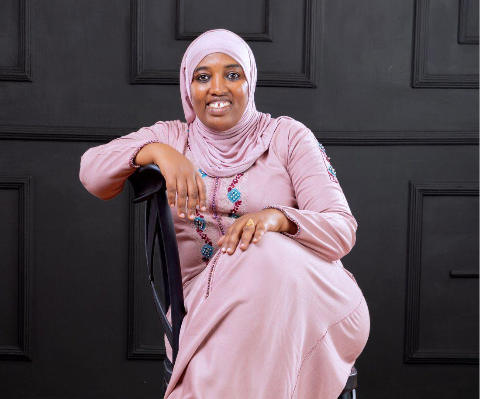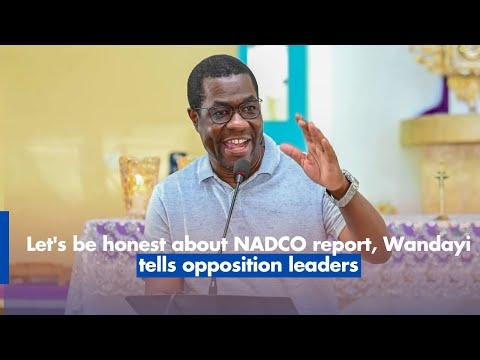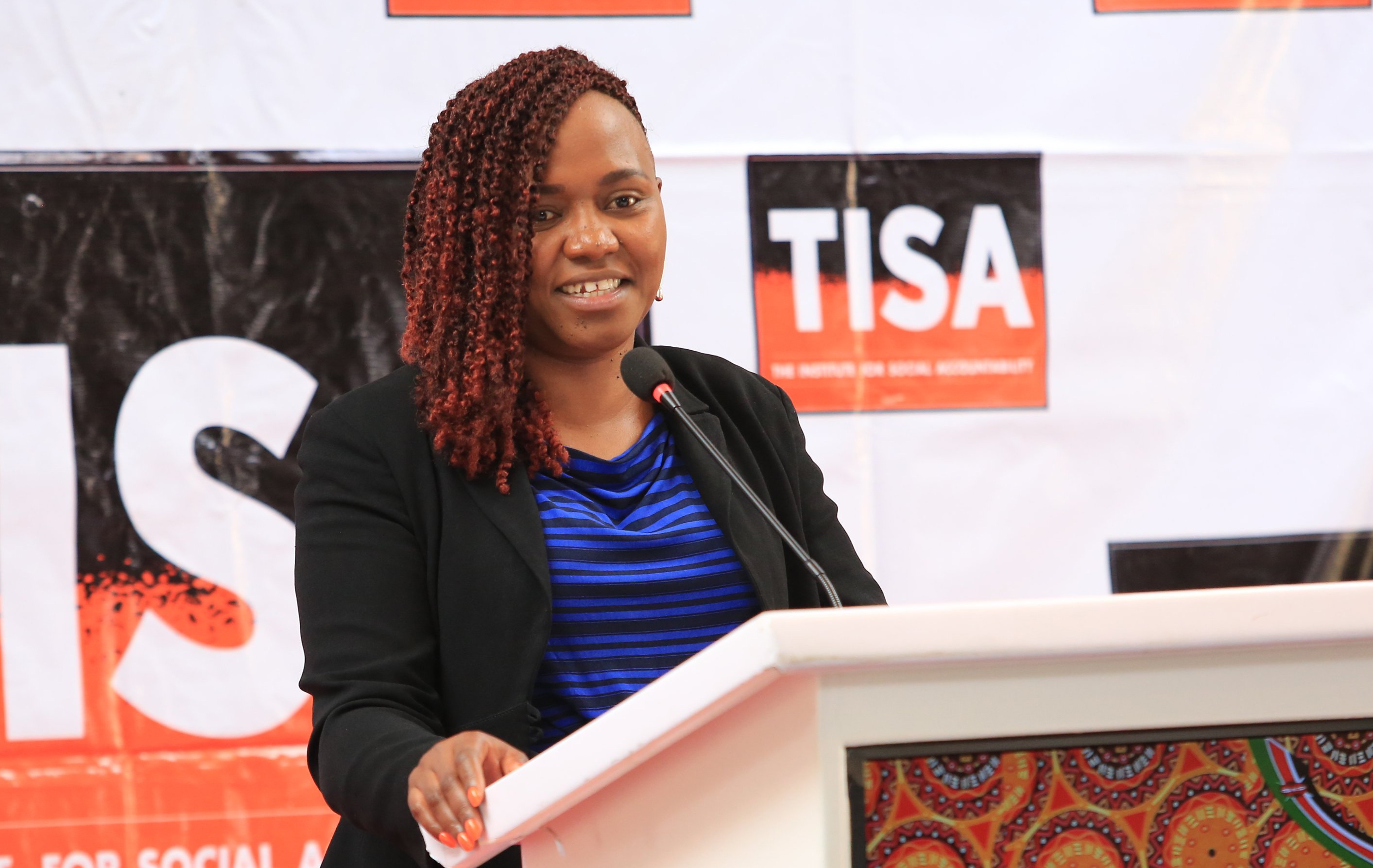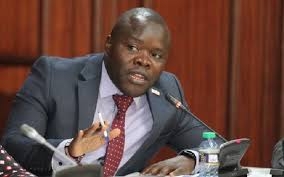

All Fatuma Abdulkadir Adan
wanted, as a six-year-old, was to kick a ball in an open ground.
Introduced to the sport by
her father, the lawyer yearned for the day she might play in an arena in front of
cheering crowds and with no limitations.
Traditionally, girls in Marsabit were not allowed to
play football, which was considered to be a man’s sport.
There was also a myth in
the community that the exertion would rupture her hymen, thus destroying her
all-important and sacred virginity and, still more important, marriageability.
Fatuma’s passion, however,
kept growing. She held on to the belief that her dream was valid.
Eventually, at age 25 she
kicked her first ball in an open field and kept at it until she played for a Kenyan
team in the Global Goals World Cup in New York.
Believing football was one
of the keys to changing the world, Fatuma returned home to found the Horn of
Africa Development Initiative (Hodi).
The High Court advocate
developed Hodi to use the beautiful game to fight discrimination against girls
and women, including FGM and early marriage.
She also used it to quell
ethnic violence among tribes.
So rigid were her
community’s beliefs that residents pelted her with stones during a live match
because she allowed girls to play football. She had to flee the pitch.
Fatuma was not deterred.
She was willing to do anything to change the outcome for girls whose future
often was decided and voided at a tender age.
Out of the 56 girls in her
primary school, only seven of them made it to high school. The rest were
married off. That realisation was illuminating; girls and women did not have a
voice or a choice.
She threw herself into
challenging culture, religion and patriarchal society in the only way she knew,
by encouraging girls to play football and painstakingly encouraging pastoralist
society to accept.
“I knew my place and
initially I would only speak from behind the men, as I tried to buy their
trust,” Fatuma tells the Star in an interview.
It took her 12 years to
break her silence on issues such as
FGM and even to talk about it in the mosque.
“However, I kept going
through patience, perseverance, and determination to never give up on myself
and the girls,” she says. “Even when I was stoned in the field, I kept showing
up. I kept telling myself my responsibility is to these girls. I was there, I
pushed the barriers and the bars that were there literally.”
Thanks to her
resilience, today many girls in
Marsabit and elsewhere in Kenya and in Ethiopia are playing football. “It’s no
longer an issue,” Fatuma says. Not everyone agrees.
Her solutions to problems
were and are two-fold. On issues such as FGM, Fatuma engaged the cutters and
through conversations, many ended up dropping the blade.
So
much has changed that the community that once stoned her now ranks her as
a high elder.
Fatuma, who also founded
Fatuma Abdullahi & Co, launched the Shoot to Score Not Kill campaign, in
which residents turned in guns for a chance to play football.
“We started by providing legal
aid desks and training paralegals in 2003,” she says.
In 2004, however, there
were a lot of killings. This war led to the killing of around 100 women and
children in a school in the Turbi massacre involving feuding clans on July 12, 2005.
Afterwards, elders held
many meetings and talked to perpetrators but women, children and young people
were not involved.
“I felt there was need to
involve women, so I invited 60 women who had lost their husbands,” Fatuma says.
“The idea was to show them it didn’t matter if you were Borana or Gabra, the
pain and experience were the same.
“The unifying pain led them
to unite to preach peace,” she says.
Her focus then shifted to the youth, who were the ones given guns to shoot rivals.
Introducing football to
them was a way of removing guns from the equation.
“We were taking the guns,
disarming them both mentally and physically and replacing them with a
football,” Fatuma says.
She and her team involved
boys and young men in peace campaigns, from planning to execution in Marsabit villages.
It was especially important
to involve boys who had grown up in a fighting culture. The aim was to give
them alternative livelihoods.
Fatuma says it took them
five years to accept there was life and a worthwhile livelihood beyond cattle
raids. Eventually, there was community buy-in and now more than 152 villages in
the Horn of Kenya are on boardscr.
Her biggest win, however,
is seeing young women and young men running Hodi, the Horn of Africa
Development Initiative, which she founded.
“They took over when I
pursued other things, but I gave them a good starting point and now they are
running the race. I believe young people have to lead today and not tomorrow,” Fatuma says.
She has coupled these
efforts with girls’ and young women’s empowerment and behavioral change. They
are going for positions such as prefects and presidents in the North Eastern
counties, which was unheard of not so long ago.
Girls’ confidence improved
and they were able to take their self-esteem to the field, where they
introduced mixed teams for football, and also girls and boys competing against
each other.
They are, however, careful
not to have any physical contact, as it is forbidden by Islam and they only
focus on no-touch football.
Fatuma has won awards,
including the Fifa Diversity Awards, the Commonwealth Points of Light Award and the Stuttgart
Peace Prize.
Her biggest award is the
resilience of pastoralist communities, where gender-based violence and
discrimination against women has been rampant. Climate change impacts have led
to loss of livestock, competition for water and pasture and violence often leading
to death.
Some of these communities
are changing the way they deal with these issues and now are giving women and
girls a chance to be part of solutions to problems that affect everyone.
She challenges everyone to follow their dreams, saying, “It is only you who can make them come true.”

















